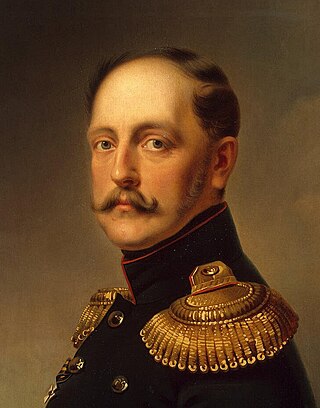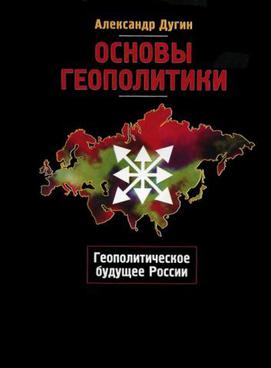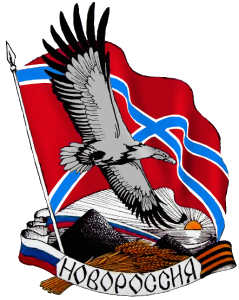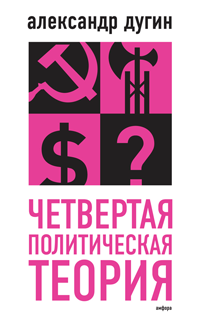
The Eurasia Party is a National Bolshevik Russian political party. It was registered by the Ministry of Justice on 21 June 2002, approximately one year after the pan-Russian Eurasia Movement was established by Aleksandr Dugin.

Aleksandr Gelyevich Dugin is a Russian far-right political philosopher.

The National Bolshevik Party, also known as the Nazbols, operated from 1993 to 2007 as a Russian political party with a political program of National Bolshevism. The NBP became a prominent member of The Other Russia coalition of opposition parties. Russian courts banned the organization and it never officially registered as a political party. In 2010, its leader Eduard Limonov founded a new political party, called The Other Russia. There have been smaller NBP groups in other countries.

The National Bolshevik Front is a Russian political party with a political program of National Bolshevism. The party was founded in 2006 by supporters of Aleksandr Dugin following a split within Eduard Limonov's National Bolshevik Party. The NBF is affiliated with Dugin's Eurasian Youth Union.

Orthodoxy, Autocracy, and Nationality, also known as Official Nationality, was the dominant imperial ideological doctrine of Russian emperor Nicholas I. The doctrine sought imperial unity under Orthodox Christianity and the absolute authority of the emperor, while suppressing ideas deemed destructive to that unity. It followed a broader European reactionary trend that sought to restore and defend political institutions that were overthrown in the Napoleonic Wars.
Neo-Stalinism is the promotion of positive views of Joseph Stalin's role in history, the partial re-establishing of Stalin's policies on certain issues and nostalgia for the Stalin period. Neo-Stalinism overlaps significantly with neo-Sovietism and Soviet nostalgia. Various definitions of the term have been given over the years.
Eurasianism is a socio-political movement in Russia that emerged in the early 20th century which states that Russia does not belong in the "European" or "Asian" categories but instead to the geopolitical concept of Eurasia governed by the "Russian world", forming an ostensibly standalone Russian civilization. Historically, the Russian Empire was Euro-centric and generally considered a European/Western power.

Russian nationalism is a form of nationalism that promotes Russian cultural identity and unity. Russian nationalism first rose to prominence as a Pan-Slavic enterprise during the 19th century Russian Empire, and was repressed during the early Bolshevik rule. Russian nationalism was briefly revived through the policies of Joseph Stalin during and after the Second World War, which shared many resemblances with the worldview of early Eurasianist ideologues.

The Eurasian Youth Union is a Russian traditionalist political organization, the youth wing of the Eurasia Party headed by Aleksandr Dugin. The organization has branches in several countries. In 2011, the Government of Ukraine has branded the ESM as an extremist anti-Ukrainian organization, convicted of a string of vandalism offenses and banned it in Ukraine.

The Foundations of Geopolitics: The Geopolitical Future of Russia is a geopolitical book by Aleksandr Dugin. Its publication in 1997 was well received in Russia; it has had significant influence within the Russian military, police, and foreign policy elites, and has been used as a textbook in the Academy of the General Staff of the Russian military. Powerful Russian political figures subsequently took an interest in Dugin, a Russian political analyst who espouses an ultranationalist and neo-fascist ideology based on his idea of neo-Eurasianism, who has developed a close relationship with Russia's Academy of the General Staff.

National Bolshevism, whose supporters are known as National Bolsheviks also colloquially known as Nazbols, is a syncretic political movement lead by Aleksandr Dugin that combines ultranationalism and Bolshevism.

The New Russia Party, or Novorossiya Party, is a political party operating in Ukraine, and in particular regions of Ukraine annexed by Russia The organization was founded by pro-Russian separatists, under the leadership of Pavel Gubarev, on 14 May 2014. The party is formally known as the Social-Political Movement "New Russia Party". It is not registered with the Ministry of Justice of Ukraine.

The Fourth Political Theory is a book by the Russian philosopher and political analyst Aleksandr Dugin, published in 2009. In the book, Dugin states that he is claiming the foundations for an entirely new political ideology, the fourth political theory, which integrates and supersedes liberal democracy, Marxism, and fascism. In this theory, the main subject of politics is not individualism, class struggle, or nation, but rather Dasein.

Putinism is the social, political, and economic system of Russia formed during the political leadership of Vladimir Putin. It is characterized by the concentration of political and financial powers in the hands of "siloviks", current and former "people with shoulder marks", coming from a total of 22 governmental enforcement agencies, the majority of them being the Federal Security Service (FSB), Ministry of Internal Affairs of Russia, Armed Forces of Russia, and National Guard of Russia. According to Arnold Beichman, "Putinism in the 21st century has become as significant a watchword as Stalinism was in the 20th."

During Ukraine's post-Soviet history, the far-right has remained on the political periphery and been largely excluded from national politics since independence in 1991. Unlike most Eastern European countries which saw far-right groups become permanent fixtures in their countries' politics during the decline and fall of the Soviet Union in 1991, the national electoral support for far-right parties in Ukraine only rarely exceeded 3% of the popular vote. Far-right parties usually enjoyed just a few wins in single-mandate districts, and no far right candidate for president has ever secured more than 5 percent of the popular vote in an election. Only once in the 1994–2014 period was a radical right-wing party elected to the parliament as an independent organization within the proportional part of the voting: Svoboda in 2012. Since then even at the height of nationalist sentiment during and after Russia's annexation of Crimea and the Russo-Ukrainian War far-right parties have failed to gain enough votes to attain political representation.

The "Russian world" is an concept and a political doctrine usually defined as the sphere of cultural and political influence of Russia.

Russian imperialism includes the policy and ideology of power exerted by Russia, as well as its antecedent states, over other countries and external territories. This includes the conquests of the Russian Empire, the imperial actions of the Soviet Union, as well as those of the modern Russian Federation. Some postcolonial scholars have noted the lack of attention given to Russian and Soviet imperialism in the discipline.

Ruscism, also known as Rashism, Russism, or Russian fascism, is a term used by a number of scholars, politicians and publicists to describe the political ideology and the social practices of the Russian state in the late 20th and early 21st centuries, especially during the rule of Vladimir Putin. "Ruscism" and "Russism" are portmanteaus which combine the words 'Russian' and 'fascism'; "Rashism" is a rough transcription of the Russian and Ukrainian equivalents. It is also used in reference to the ideology of Russian military expansionism, and has been used as a label to describe an undemocratic system and nationality cult mixed with ultranationalism and a cult of personality. That transformation was described as based on the ideas of the "special civilizational mission" of the Russians, such as Moscow as the third Rome and expansionism, which manifests itself in anti-Westernism and supports regaining former lands by conquest. The term "Rashist" is also widely used by Ukrainian officials and media to more generally identify members of the Russian Armed Forces and supporters of Russian military aggression against Ukraine.
The Izborsky Club is a Russian Conservative think tank which specializes in studying Russia's foreign and domestic policy.

Darya Aleksandrovna Dugina, also known under the pen name Daria Platonova, was a Russian journalist, political scientist and activist.















